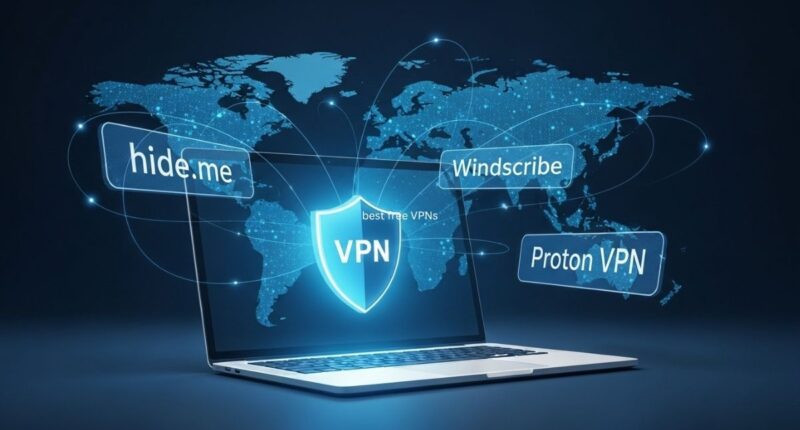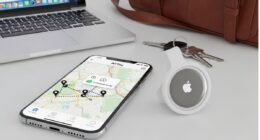A good VPN (Virtual Private Network) is definitely worth the price. Almost every service I recommend as the best is either a paid service or supported by a payment plan. In this “Software-as-a-Service (SaaS)” world, not everyone can afford another subscription.
But everyone deserves privacy and freedom online. That’s why I decided to compile a list of the best free VPNs.
Some people will say that free VPNs are inherently a security risk and should be avoided. This bad reputation is because free VPNs are actually dangerous.
While the need for VPNs has increased due to increasing age verification laws, some free services have responded well, while others have taken the opportunity to spread malware.
Free VPNs are easy to set up by scammers and are difficult to catch in app stores. So I would never recommend using them without doing some research.
The three services on this list are exceptions to the dangerous trap of free VPNs. While they have their drawbacks, they are open about what they do and don’t do.
All three have solid security, clean records of handling user data, and apps that don’t force you to upgrade to work properly. They’re not the only good free VPNs, but they’re in the top three.
Best Free VPNs For 2025
1. hide.me
Hide.me had an easy path to the top of my free VPN list because it was the only provider that met the three most important criteria in its free plan. These are:
- No ads
- No monthly data cap
- Free choice of server locations
This makes it the only free VPN that you can use for streaming all the time. (You can choose from 7 free servers – USA, UK, France, Germany, Netherlands, Switzerland, and Finland).
Hide.me is more than just a winner. It comes at no cost, has an easy-to-navigate interface on both desktop and mobile, and download speeds are never slow. Although Hide.me claims to limit speeds for free users, I’ve never experienced any.
As a security solution, you can trust it indefinitely. This provider also pays little attention to marketing, and it’s clear that they care.
Since Hide.me is supported by a paid plan, there’s no doubt about how they make money. Their privacy policy prohibits them from storing any device identifiers or user activity logs. This was confirmed by a Securitum audit in 2024.
They also plan to manage IPv6 traffic on their servers. This is a forward-looking feature that is rare for free VPNs, even for paid VPNs. Free users can also use a Kill Switch.
If you decide to upgrade, you’ll get 91 server locations, Dynamic Multihop functionality with selectable ports, 10 simultaneous connections, and the SmartGuard ad-blocking system.
Pros
- Completely free with no data limits
- Easy to use interface and fast apps
- Free IPv6 support included
Cons
- Limited server locations available on free plan
- Advertisement that speeds will be throttled after 10 GB per month (but in practice, there is no such limit)
2. Windscribe
Windscribe is the closest thing we can get to a counterculture VPN. From its unconventional app design to the bold writing of its founder Yegor Sak, Windscribe is passionately opposed to anything that threatens privacy and truth.
If you’re equally outraged, this VPN means you don’t have to put up with it.
How does this idea work in practice? Pretty well.
- The free plan gives you 10 GB of data per month after you verify your email address. (2 GB if you don’t provide an email address.)
- You can get an additional 5 GB per month by writing about Windscribe on X/Twitter.
- You can freely choose between 10 well-spaced server locations around the world.
- Speeds are the same on both free and paid servers—always fast, and only occasionally slow down.
What’s even better is that there are no paywalled features. While paying for a subscription does offer some extras and expanded functionality, such as R.O.B.E.R.T. ad blocking (don’t ask what the name means, it doesn’t represent anything), nothing is completely locked behind a paid door.
Windscribe is also the only VPN on this list that offers a choice between free and paid—you can create your own plan to use only the servers you need, and prices start at just $3.
The biggest problem with Windscribe’s personalized approach is its user interface (UI). They didn’t try to copy the style of other VPNs, so they used a very simplistic design.
This can be confusing for first-time users, and there are too many steps in each process. This is its biggest drawback.
Pros
- Fast and private
- All features are at least partially free
- You can build your own custom payment plan
Cons
- App design is awkward and weird
- Limited ability to use some features
- Monthly data caps
3. Proton VPN
Proton VPN is the best VPN out there right now, combining fast, reliable performance with a reasonable price. Its apps are amazing, and it has a great, spotless security record.
It’s also the only VPN that lets you access Netflix from anywhere, and some of its servers are protected from being hacked underground.
As a free VPN, Proton is a bit behind its competitors, but it’s still in third place.
- Free users get unlimited data, which is really nice.
- But you don’t get to choose your own server location without paying—the app will automatically choose the fastest location for you. So if you need a free VPN for streaming, you should check out hide.me.
That said, Proton VPN’s free plan comes with 8 server locations, which is a lot of servers. The free servers are not only less slow, but they’re also well-spaced to be near you.
If you connect and forget about your free Proton VPN app, you can stay anonymous online for an unlimited amount of time.
The free version of Proton VPN is ad-free. That means it doesn’t have any tracking ads. Free users are also protected by their no-logs policy, which is audited annually by Securitum in September 2025.
You can also use the Kill Switch for free, and the Stealth Protocol, which defeats VPN blocks.
Pros
- Very fast with no data caps
- Free Kill Switch and obfuscation features
- 8 free servers
Cons
- Free plan doesn’t allow you to choose your own server
- Best features are only available with paid plans
Also Read: Microsoft Rolls Out New Windows 11 Start Menu
What to look for when choosing a free VPN?
While there is a lot of competition in the market, choosing a VPN can be difficult, but the risks to consider when choosing a free VPN are much higher. Free VPNs are everywhere, and App Stores don’t effectively vet them. So you’re left to decide for yourself whether a free VPN is a good idea, a scam, or a real way to spread malware.
My top three recommendations, hide.me, Windscribe, and Proton VPN, are all clean (and trustworthy). If you choose to use something else, here are some red flags to consider.
Security
First, make sure that the free VPN isn’t a threat to your security. Do your research to see if it’s been warned by experts, and make sure it uses well-known and recognized encryption methods (OpenVPN, WireGuard, IKEv2, or equivalent). If you have an antivirus program, Download the VPN in Sandbox Mode and scan it while it’s isolated.
Privacy
Read the privacy policy of the free VPN carefully and see if they give you any permission to use your personal information. As a general rule, never use a free VPN that is “ad-supported,” as almost all ad-supported services track users for targeted advertising campaigns. Other free services, such as Hola VPN, make money by selling your IP addresses. Be aware of any signs that the VPN is profiting from your personal information.
Usage Requirements
Once you’ve decided that a free VPN is safe and secure, the next step is to make sure it’s suitable for the tasks you have in mind. Most reputable free VPNs are limited in some way. Adjust the restrictions to suit your needs, For example, if you want a free VPN for streaming, choose one that offers unlimited data and lets you choose your own server location.
Speed
Even if it meets the minimum security and privacy requirements, a free VPN should meet the same standards as a paid service. The main thing is that it should be fast. With your free VPN turned on, run speed tests in multiple locations using Ookla. On average, its speed should not be more than 25 percent slower than your unprotected download speed.









